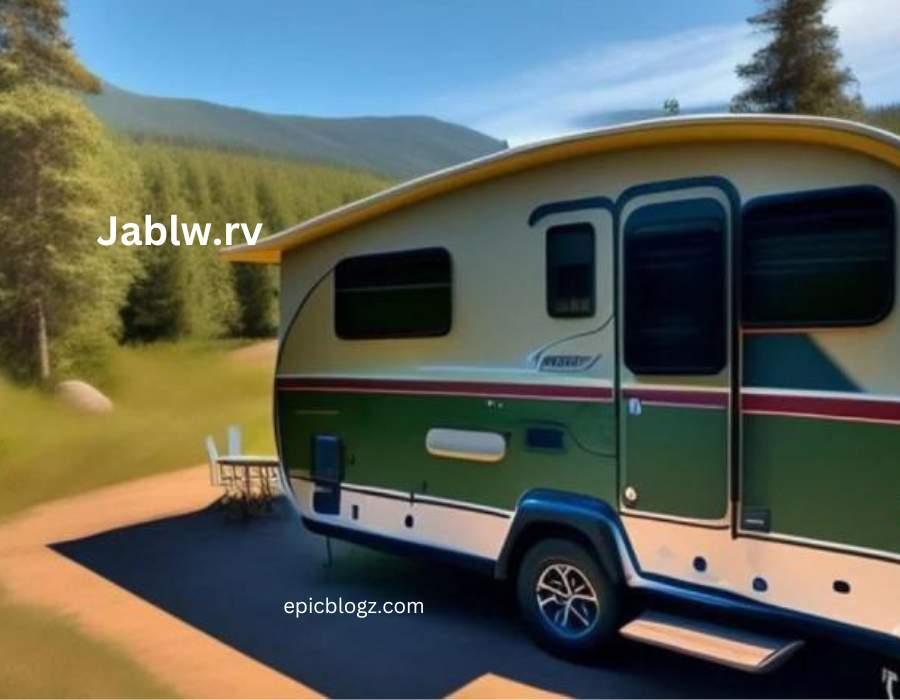Introduction to Jablw.rv
RV travel is one of the most exhilarating ways to explore the open road. Whether you’re a seasoned road warrior or a first-time traveler, the freedom that comes with having your home on wheels is unmatched. From camping under the stars to discovering hidden gems along highways, RV travel opens up a world of adventure. But as with any journey, preparation is key. That’s why Jablw.rv has become a trusted resource for RV travelers seeking expert advice, tips, and inspiration.
This guide dives into essential RV travel tips you’ll find on Jablw.rv, helping you hit the road with confidence and enjoy every mile of your journey.
Why Choose RV Travel?
RV travel offers a unique combination of freedom, comfort, and adventure. It allows you to experience the great outdoors without giving up the conveniences of home. Whether you want to camp in remote wilderness areas, explore national parks, or visit small towns and big cities, RV travel makes it possible.
Here’s why more people are choosing RVs as their go-to travel method:
- Flexibility: No more worrying about check-in times or hotel bookings. With an RV, you control the itinerary.
- Comfort on the Go: Enjoy the comforts of home, from your own bed to a stocked kitchen, while exploring new places.
- Cost-Effective: In the long run, RV travel can save money, especially for long trips or family vacations. No need to constantly pay for lodging or dining out.
- Connection to Nature: Park in beautiful, remote locations, and wake up surrounded by nature.
Planning Your RV Trip: Essential Tips
Before you set out on your RV adventure, some planning is essential. Jablw.rv offers a comprehensive guide to help first-timers and seasoned RVers alike.
1. Choose the Right RV
Not all RVs are created equal. Jablw.rv provides detailed insights into the types of RVs available, from compact camper vans to luxurious motorhomes. The right RV for your trip depends on factors like:
- Size: Consider how many people are traveling with you and how much space you need.
- Amenities: What comforts are non-negotiable for you? Some RVs come with full bathrooms, kitchens, and entertainment systems, while others are more minimalistic.
- Driveability: Think about whether you want to tow a trailer or drive a motorhome. Test driving different RVs can give you a feel for what you’re comfortable handling.
2. Route Planning
Mapping out your route is one of the most important parts of RV travel. While spontaneous detours are part of the fun, having a rough itinerary will ensure you make the most of your time on the road.
- Best Routes: Jablw.rv offers curated lists of scenic routes, including detailed descriptions of what you’ll encounter along the way. From coastal drives to mountain passes, there’s a route for every type of traveler.
- RV-Friendly Roads: Make sure your route is RV-friendly. Some roads may have restrictions on height, weight, or length that could limit your options.
- Campsite Reservations: If you’re heading to popular destinations, such as national parks, it’s best to reserve campsites ahead of time to avoid disappointment.
3. Packing for Your RV Adventure
Packing for an RV trip is different from packing for a hotel stay or a flight. You need to strike a balance between bringing the essentials and avoiding overpacking. Jablw.rv has several handy packing lists to keep you organized.
- Safety Gear: Don’t forget items like road flares, first-aid kits, and a fire extinguisher.
- Tools: Keep basic tools for RV maintenance on hand. You never know when you’ll need to fix something on the go.
- Kitchen Essentials: Stock your RV kitchen with versatile items that are easy to store and prepare, such as canned goods, spices, and utensils.
- Outdoor Gear: Don’t leave without your hiking boots, bikes, or other outdoor adventure equipment.
4. Preparing Your RV
Jablw.rv emphasizes the importance of ensuring your RV is road-ready before heading out. Regular maintenance and pre-trip checks can save you from major headaches later on.
- Check the Tires: Ensure your tires are in good condition and properly inflated. Tires are one of the most critical aspects of RV safety.
- Test Appliances: Check that all appliances (fridge, stove, air conditioning) are functioning properly before you hit the road.
- Inspect Seals and Roofs: Water leaks can cause serious damage to an RV. Check for any signs of wear or cracks in seals and around the roof.
On the Road: Staying Safe and Comfortable
Once you’re on the road, the real adventure begins. Here are a few tips to keep your journey safe and enjoyable:
1. Drive Safely
Driving an RV requires some adjustment, especially if you’re used to driving smaller vehicles. Here’s what you need to keep in mind:
- Mind Your Speed: RVs take longer to stop and maneuver than regular cars. Drive at a slower, safer speed, especially on curvy roads or in high traffic areas.
- Take Breaks: Driving for long stretches can be tiring, especially in an RV. Take regular breaks to stretch, relax, and refocus.
- Use a GPS Made for RVs: GPS units specifically designed for RVs will help you avoid low-clearance bridges, narrow roads, and other obstacles that can be difficult to navigate.
2. Stay Connected
While one of the joys of RV travel is getting away from it all, staying connected to the outside world is important—whether it’s for emergency situations or simply to check directions.
- Cell Signal Boosters: In remote areas, a cell signal booster can help you stay connected.
- Wi-Fi Hotspots: Some RVers rely on portable Wi-Fi hotspots to keep in touch and even work while traveling.
- Emergency Contacts: Always let someone know where you’re headed and when you expect to arrive, especially if you’re exploring remote areas.
Making the Most of RV Campsites
Arriving at your RV campsite can be one of the most exciting moments of the trip. Whether you’re staying in a well-equipped RV park or a rustic wilderness site, following these tips will help you make the most of your stay:
1. Campsite Setup
When you arrive at your campsite, take a moment to properly set up your RV. Here’s what to keep in mind:
- Level Your RV: Use leveling blocks to ensure your RV is on flat ground. A level RV means your appliances will work properly, and you’ll have a more comfortable living space.
- Hook Up Utilities: If you’re staying at a full-service campsite, connect to the available water, electricity, and sewage systems.
- Secure Your Space: Set up any outdoor furniture, awnings, and lights to create a cozy, functional living space outside your RV.
2. Respect Campsite Etiquette
RV campsites are shared spaces, and respecting campsite etiquette will ensure a pleasant experience for everyone.
- Quiet Hours: Most campsites have designated quiet hours to help everyone enjoy a peaceful night’s sleep.
- Cleanliness: Always clean up after yourself. Dispose of trash properly, and avoid leaving any food outside that could attract wildlife.
- Respect Personal Space: Be mindful of the space around other campers. Avoid parking too close to their RVs or encroaching on their campsite boundaries.
Essential RV Travel Apps and Tools
Technology has made RV travel easier and more convenient. From finding the best campsites to tracking your fuel consumption, there’s an app or tool for almost every aspect of RVing. Jablw.rv provides a list of recommended apps to enhance your journey.
1. RV Parky
This app helps you find RV parks, campgrounds, and overnight parking spots. It’s user-friendly and includes reviews from other travelers.
2. GasBuddy
GasBuddy helps you find the cheapest gas stations along your route, saving you money on long road trips.
3. Roadtrippers
Roadtrippers allows you to plan your route and discover interesting stops along the way, including restaurants, scenic views, and attractions.
4. CoPilot GPS
Specifically designed for larger vehicles, CoPilot GPS helps RVers navigate with ease, avoiding low-clearance bridges and narrow roads.
RV Life: Tips for Living on the Road
Living in an RV is vastly different from a typical vacation. It requires some adjustment and a different mindset. Here are a few tips from Jablw.rv to make life on the road smoother:
1. Stay Organized
Space in an RV is limited, so staying organized is crucial. Use storage bins, shelves, and hooks to maximize every inch of space. Make a habit of putting things back in their place to keep the RV clutter-free.
2. Manage Water and Power
When staying at campsites without full hookups, managing your water and power becomes essential. Limit your water usage by taking shorter showers and turning off the faucet while brushing your teeth. Use energy-efficient appliances and conserve power wherever possible.
3. Embrace Minimalism
Living in an RV teaches you to appreciate minimalism. Bring only what you need, and focus on experiences over material possessions. RV living is about enjoying the journey, not accumulating things.
Common RV Travel Challenges and How to Overcome Them
While RV travel is full of rewards, it comes with its own set of challenges. Here are some common issues and how to handle them:
1. Mechanical Problems
RVs, like any vehicle, require regular maintenance. Before your trip, make sure to schedule an inspection and handle any necessary repairs. Keep a toolkit handy for minor fixes on the road.
2. Limited Internet Connectivity
While some RV parks offer Wi-Fi, many remote locations do not. Invest in a mobile hotspot or satellite internet for connectivity in rural areas.
3. Weather Conditions
Weather can change rapidly, especially when traveling across different regions. Always check the forecast before heading out and be prepared for rain, wind, or extreme temperatures. Bring extra blankets, waterproof gear, and make sure your RV is well-insulated.
Sustainable RV Travel Tips
Being an eco-conscious traveler is important for protecting the beautiful landscapes you explore in your RV. Here are a few ways to practice sustainability on the road:
- Use Solar Power: Many RVs come equipped with solar panels, or you can add them yourself. Solar energy reduces your reliance on traditional power sources and is better for the environment.
- Recycle and Compost: Keep recycling bins in your RV, and properly dispose of waste. Consider using a small compost bin for organic waste.
- Limit Fuel Consumption: Plan efficient routes, maintain a steady speed, and avoid unnecessary idling to reduce your fuel consumption and carbon footprint.
Conclusion
RV travel is one of the most exciting ways to explore the world around you. It offers unparalleled freedom, allowing you to travel at your own pace while bringing the comforts of home along for the ride. With proper planning, a reliable vehicle, and the expert advice found on Jablw.rv, you’ll be ready to hit the road and enjoy every aspect of your RV adventure. Whether you’re exploring national parks, discovering scenic highways, or simply enjoying the great outdoors, RV travel provides the perfect blend of adventure and comfort.
ALSO READ: Https://mobilehomeexteriors.com: Transform Your Mobile Home
FAQs
What should I pack for an RV trip?
Pack essentials like tools, kitchen items, safety gear, and outdoor equipment. Remember to balance bringing enough supplies with avoiding overpacking.
How can I drive an RV safely?
Drive at a slower speed, use GPS designed for RVs, and take regular breaks to avoid fatigue. Pay attention to road restrictions for larger vehicles.
How do I find RV campsites?
Use apps like RV Parky to locate RV-friendly campsites. Always check if they offer full hookups or require reservations ahead of time.
How can I conserve water and power in my RV?
Take shorter showers, turn off faucets when not in use, and use energy-efficient appliances to manage water and power consumption.
What should I do if my RV breaks down?
Regular maintenance is key to preventing breakdowns. Always travel with a toolkit, and consider joining a roadside assistance program for RVs.
What’s the best way to live sustainably in an RV?
Utilize solar power, recycle, and plan efficient routes to minimize your environmental impact while on the road.







